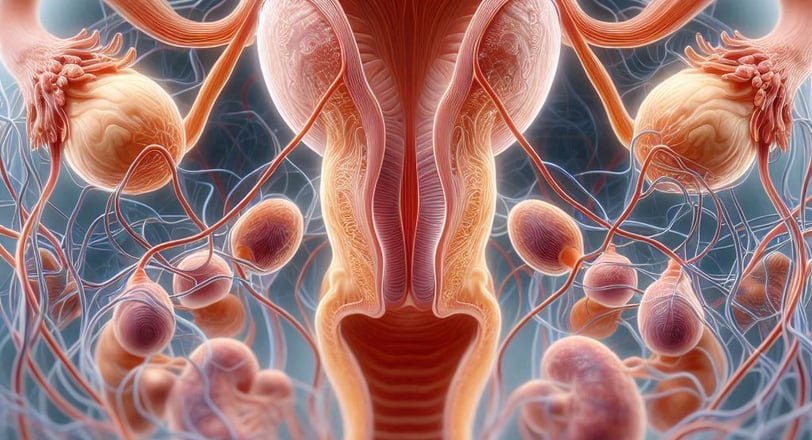Fallopian Tube Cancer: Causes, Symptoms, Treatment
Exploring the complexities of Fallopian tube cancer, a rare and challenging gynecological condition. Delve into symptoms, diagnosis, and the latest advancements in treatment.


Introduction
Fallopian tube cancer is a rare form of gynecological cancer that starts in the fallopian tubes, the slender tubes connecting the ovaries to the uterus. Although it is relatively uncommon, understanding its causes, symptoms, treatment options, and necessary precautions is crucial for early detection and effective management.
Causes of Fallopian Tube Cancer
The exact cause of fallopian tube cancer is unknown, but certain risk factors have been identified. These include a family history of ovarian or breast cancer, certain genetic mutations like BRCA1 and BRCA2, age (usually occurring in women aged 50 and above), and a history of pelvic inflammatory disease or infertility. However, it's important to note that most women with these risk factors do not develop fallopian tube cancer.
Symptoms of Fallopian Tube Cancer
The symptoms of fallopian tube cancer are often non-specific and can be mistaken for other conditions. Common symptoms include abdominal pain or discomfort, bloating, changes in bowel habits, frequent urination, pelvic pain, abnormal vaginal bleeding or discharge, and unexplained weight loss. It is crucial to consult a healthcare professional if any of these symptoms persist or worsen.
Treatment Options
The treatment of fallopian tube cancer typically involves a combination of surgery, chemotherapy, and radiation therapy. The primary goal is to remove the cancerous cells and prevent the spread of the disease. The specific treatment plan depends on various factors such as the stage of cancer, the overall health of the patient, and individual preferences. Surgery may involve the removal of the fallopian tubes, ovaries, uterus, and nearby lymph nodes. Chemotherapy and radiation therapy may be recommended before or after surgery to target any remaining cancer cells.
Precautions
While there are no guaranteed ways to prevent fallopian tube cancer, certain precautions can reduce the risk. Regular gynecological check-ups and screenings are essential, especially for women with a family history of ovarian or breast cancer. Maintaining a healthy lifestyle, including a balanced diet, regular exercise, and avoiding tobacco and excessive alcohol consumption, can also contribute to overall well-being and potentially reduce the risk of cancer. Additionally, discussing the possibility of genetic testing with a healthcare provider can help identify any inherited genetic mutations that may increase the risk of developing fallopian tube cancer.
Conclusion
Fallopian tube cancer is a rare but serious condition that requires early detection and appropriate treatment. By understanding the causes, recognizing the symptoms, exploring available treatment options, and taking necessary precautions, women can empower themselves to take control of their health. Regular medical check-ups, open communication with healthcare providers, and a healthy lifestyle are essential components of maintaining overall well-being and reducing the risk of fallopian tube cancer.
